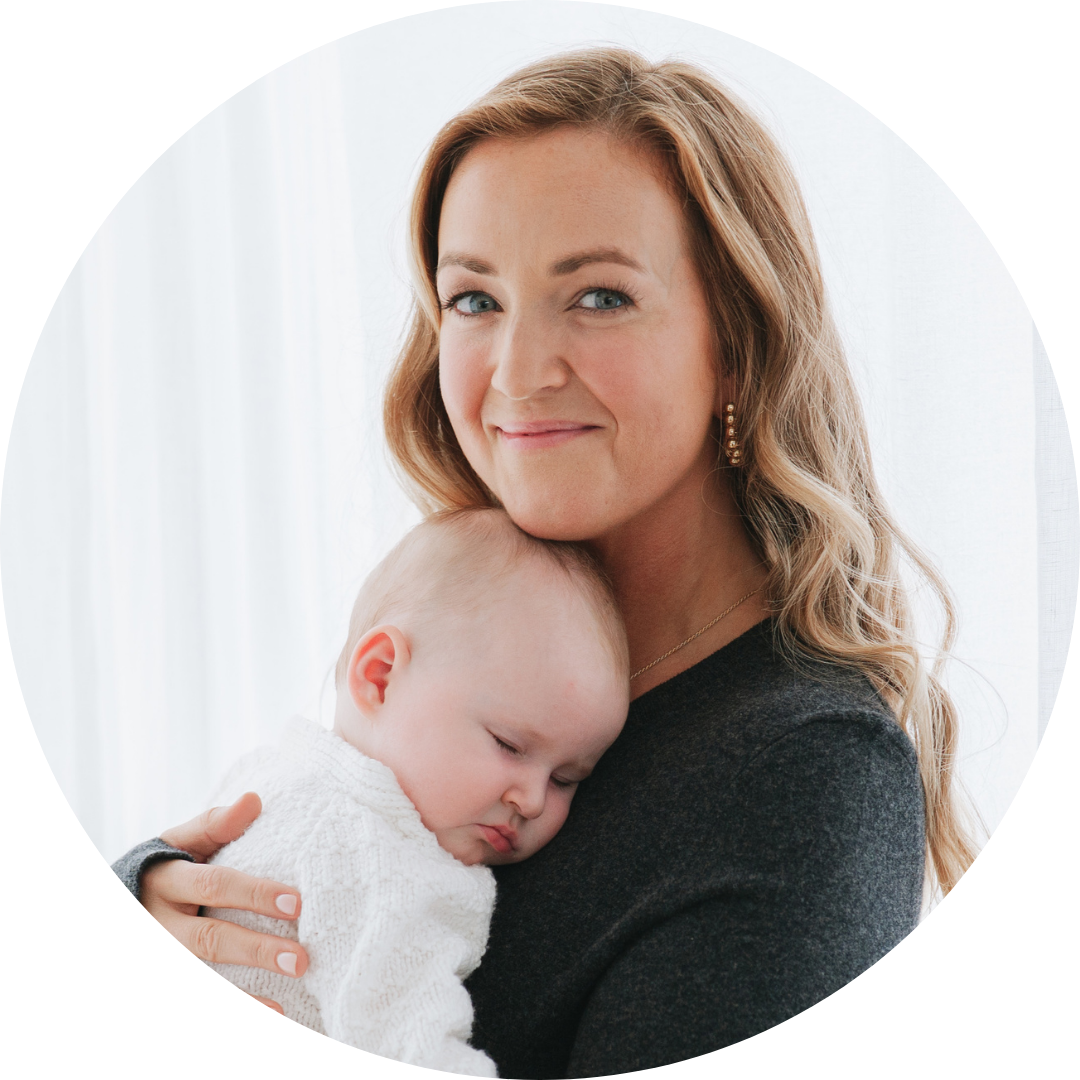Controversial opinion alert! If you are wanting to make a big improvement to your little one's sleep, then it's likely you'll need to make some changes to your existing day-to-day life.
At The Sleep Chief, a daytime routine with set timings is central to our method. It's what we will talk you through step-by-step in our consultations, and every sleep programme that we sell has a routine for your baby's age group to follow. Routine is so important for babies' sleep, and it's about so much more than a bedtime routine.
What can a good routine do for your family?
A routine can:
• Help you make sure your baby is feeding and eating well during the day
• Get your baby's daytime sleep complementing the nighttime sleep
• Give you a happier, easier bedtime
• Tell you when your baby is going to be getting tired and cranky each day (i.e., not the time to begin a swimming lesson!)
• Give YOU predictable breaks each day
• Give you your evenings back to Netflix and actually chill!
• Give you a happier, more content baby with less crying
The science behind why naps matter so much
When it comes to baby sleep, there's a common misconception that daytime and night time sleep are separate entities. Many parents tell us: "I don't mind the daytimes being a bit rubbish, I just need the night time sleep to get better!" But it's almost always the case that you can't improve the night time sleep until the daytime sleep is working well.
Sleep isn't just about the quantity but also the quality and timing. When babies sleep well during the day, their bodies produce the right balance of sleep hormones. Melatonin (the sleepy hormone) and cortisol (the wake-up hormone) need to work in harmony for optimal sleep. When babies are overtired from insufficient daytime sleep, they produce excess cortisol, making it harder for them to unwind and fall asleep at night.
Classes vs. naps: finding the right balance
When it comes to baby classes - don't get me wrong - we are big fans! Babies really enjoy them, they are so good for meeting fellow parents, and if it's one day of the week where a class is taking place when your baby would be due a nap, then there's usually a way around it on that day.
But if you have classes and activities most days of the week that are at times when your baby could really benefit from having a nap, this is when we would recommend re-jigging things.
That could mean:
1. Asking about an earlier/later class time
2. Making sure that you have a feed or pouch with you at the class to ensure your baby eats well before falling asleep immediately afterwards (something that will enable your baby to nap for longer)
3. Cancelling a class that just doesn't work well timings-wise
After all, a class is not much fun if your baby is miserable or falling asleep for the entire thing and then not sleeping well that night either!
The lunchtime nap: the golden ticket to good sleep
One of the most critical naps in your baby's day is the lunchtime nap. This nap, ideally occurring somewhere between 12-2:30 pm depending on your baby's age, is typically the longest and most restorative nap of the day.
For most babies, self-settling at bedtime and overnight tends to be easier, and achieving this longer nap can take a bit more time and patience. It's usually the last piece of the puzzle to crack! That's why we strongly recommend prioritizing this nap over almost any other daytime activity.
Pro tip: If you're struggling with extending your baby's naps, check out our Extending Naps Guide for step-by-step instructions on helping your baby connect sleep cycles.
When early rising becomes a problem
One common issue that stems from poor daytime sleep is early rising. When babies wake before 6 am regularly, it's often not because they're "morning people" - it's frequently a sign that something in their sleep routine needs adjustment.
Early rising can be tough to overcome because there's not one clear answer as to why it might be happening. It requires a process of elimination to find what might be causing your little one to wake early. Some common culprits include:
• Not enough darkness in the room (those early morning light leaks!)
• Overtiredness from the previous day
• An imbalance in daytime sleep
• Room temperature issues
• A habit wake that's become established
Finding freedom through routine
I think for some, the word "routine" evokes a feeling of being restricted, but for me, having a routine with my son gave me so much freedom. I could make plans at specific times and know that I would be able to be there. I could know when I was going to get a break each day for a cup of tea and some time to relax. I could eat dinner with my husband while it was still hot!
I could never understand it when friends with babies could never commit to a time to meet because they didn't know what time their baby would be falling asleep or waking up.
A routine is the answer, people!
Creating a sleep-friendly routine that works for you
The key to a successful routine isn't rigidity – it's consistency. You don't need to panic if your routine shifts by 15-30 minutes occasionally. The important thing is having a predictable rhythm to your day that your baby can rely on.
Here are some principles to keep in mind when establishing your routine:
1. Start and end your day at consistent times
Starting your day at the same time each morning sets your baby's circadian rhythm. Even if your baby wakes earlier than your designated "start time", treat anything before (for example) 7am as a night wake rather than the start of the day.
2. Plan naps around your baby's natural sleep windows
Babies have natural windows of wakefulness depending on their age. Fighting against these biological rhythms makes it harder for everyone. Our age-specific routines are designed to work with these natural patterns.
Pro tip: Not sure about the ideal wake windows for your baby's age? Our Sleep Programmes include detailed routines for every age from 4 weeks to 4 years.
3. Create a consistent pre-nap routine
Just like a bedtime routine signals it's time for night sleep, a mini pre-nap routine helps your baby transition to naptime. This might be as simple as a diaper change, sleep sack, curtains closed, and a quick song or story.
4. Balance feeding and sleeping times
Ensuring your baby gets full feeds during the day is crucial for night time sleep. If your baby tends to snack feed during the day, they're more likely to wake for feeds at night.
When naps go wrong: the ripple effect
Let's talk about what happens when naps don't go as planned. A missed or shortened nap doesn't just impact that part of the day – it creates a ripple effect that influences everything that follows.
For example, if your baby's lunchtime nap is cut short:
• They'll likely be cranky and harder to engage with in the afternoon
• They may need an extra catnap that wasn't in the routine
• Bedtime might need to be brought forward
• Night time sleep may be more disturbed
• The next day may start earlier, continuing the cycle
This is why we sometimes recommend saying no to a class or activity if it consistently interferes with your baby's optimal nap time. The payoff of better sleep (and a happier baby) is almost always worth the sacrifice.
Adapting your routine as your baby grows
As your baby grows, their sleep needs will change. What works at 3 months won't work at 6 months, and what works at 6 months won't work at 12 months. Your routine needs to evolve with your baby.
Key developmental milestones in sleep include:
• 3-4 months: When babies' sleep cycles become more like adults'
• 6-8 months: When many babies are ready to drop the third nap
• 12-15 months: When most babies transition from two naps to one
• 2-3 years: When toddlers typically drop the daytime nap altogether
Need a blueprint to follow?
Our Sleep Guides give you a step-by-step plan to follow to help your little one to become a great sleeper.
Making it work with siblings and other commitments
One of the most common concerns we hear is: "But what about my older child's schedule?". It's true that balancing multiple children's needs can be challenging, but it's absolutely possible.
Some strategies that have worked for our clients include:
• Using the morning nap time to do activities with older siblings
• Aligning the main nap of the day for all children who still nap
• Taking advantage of independent play for older children during the baby's naptime
• Occasionally using a carrier or stroller nap when you absolutely need to be out for the older child
Remember, this phase is temporary. Investing in good sleep habits now pays dividends in terms of better behavior, development, and family harmony in the long run.
The bottom line: prioritize sleep now for better days ahead
There's a saying in the sleep consulting world: "Sleep begets sleep." Well-rested babies sleep better than overtired ones. It might seem counterintuitive, but babies who nap well during the day often sleep better at night too.
While it might feel difficult to prioritize naps over classes, playdates, or errands in the short term, the long-term benefits of a well-rested child (and well-rested parents!) are immeasurable.
When babies get the sleep they need:
• Their learning consolidates
• Their bodies repair and their immune systems strengthen
• Their brains create and connect new neurons
• Their emotions are regulated
A well-rested baby is a happy baby, and a well-rested parent is definitely a happier parent.
Ready for more structured days?
Feeling ready to have some more structure to your days? All of our sleep guides include a daytime routine starting from 4 weeks up to 4 years. These aren't rigid schedules that control your life, but rather frameworks that support your baby's natural rhythms and help everyone get more rest.
Remember, you're not missing out by prioritizing sleep – you're setting your family up for more enjoyable, engaged, and energetic time together when you are all well-rested.









